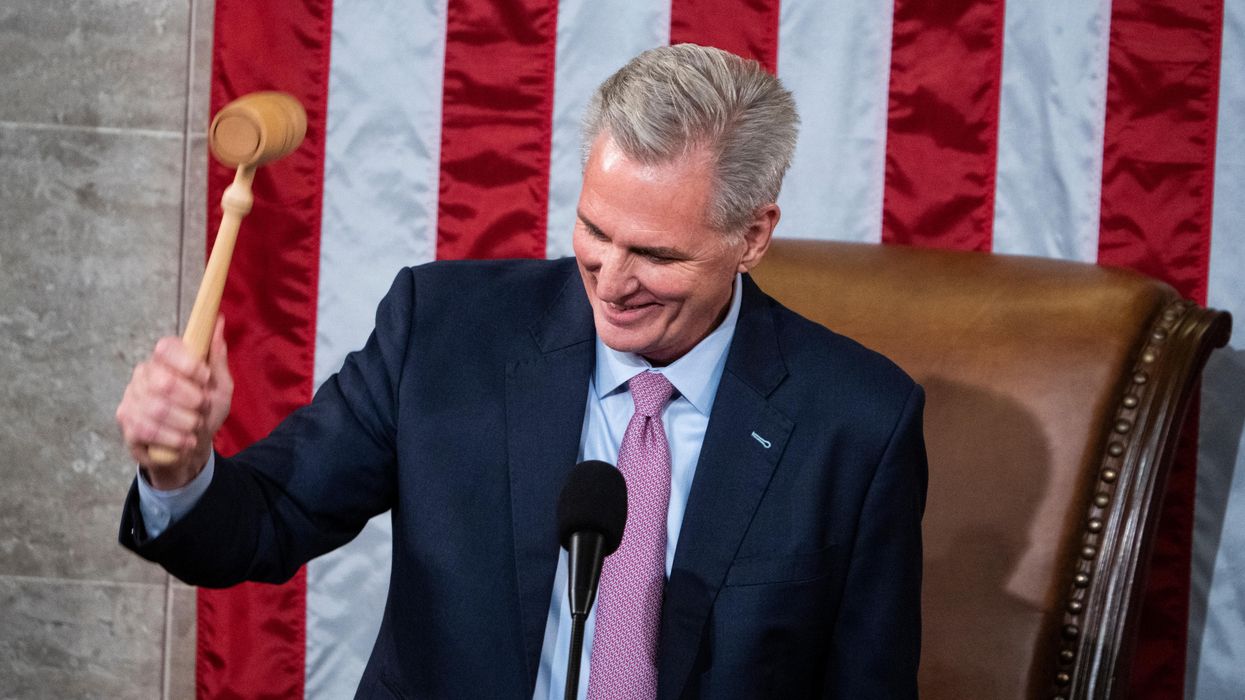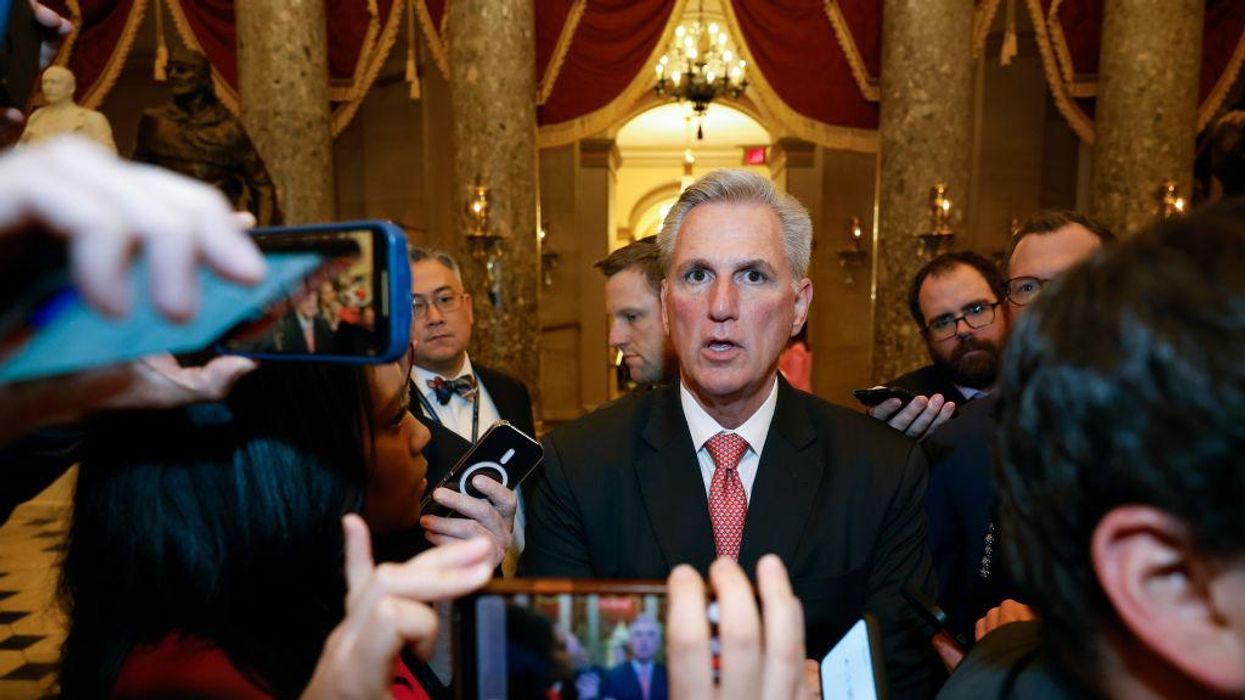
The nearly 450-member Democratic National Committee will meet in Philadelphia in February for the organization’s winter meeting, and the progressive wing of the party won’t be on the sidelines. Media will likely focus on the proposed changes to the 2024 primary calendar and a possible presidential candidacy announcement by incumbent President Joe Biden, who will address attendees along with Vice President Kamala Harris. Less attention, however, will be placed on the quiet yet persistent progressive-led efforts toward party reform.
While Republicans now control the U.S. House, which stifles prospects for any major Democratic legislation over the next two years, progressives are not slowing their efforts to transform U.S. politics. Both in Congress and through internal Democratic Party decision-making, progressives are building on lessons learned during the first years of the Biden administration to grow their power. This effort includes using their expanding congressional ranks to push progressive policy and when necessary challenge Democratic Party leadership, build progressive majorities in state-level parties, and change internal rules to ban dark money in primaries.
The most dramatic changes in progressive party reform over the past year can be seen in the growth of the Congressional Progressive Caucus (CPC). After the November 2022 midterms, the caucus now claims an all-time high of 103 members—nearly half of all House Democrats.
In the past, the CPC has been criticized for failing to deliver on progressive goals and including members not fully committed to achieving them. However, since reforming internal CPC rules in 2020 to create more unity and enforce members voting as a bloc, the caucus has proven to be increasingly influential in the party. Along with such policy wins as including $1,400 stimulus checks and expanded unemployment benefits in 2021’s American Rescue Plan, the CPC has helped shape the Democrats’ national priorities and economic playbook under the leadership of Rep. Pramila Jayapal (D-Wash.).
To be sure, a number of CPC priorities, including expansive social programs in the original Build Back Better legislation, stalled out due to opposition from conservative Democrats in the Senate. Nevertheless, on a number of key issues, the CPC has made a concrete difference over the first two years of the Biden administration.
Progressives on the move
Take the passage of the Inflation Reduction Act (IRA) in summer 2022, which included historic subsidies for renewable energy. Progressives were instrumental in reviving elements of Build Back Better which ultimately made it into the IRA, around climate change mitigation, taxing the wealthy, and lowering prescription drug costs.
After the IRA moved through the House, a number of prominent national environmental groups, such as the League of Conservation Voters, cheered its passage. But at the time, few of these green groups mentioned the inclusion of a key permitting deal which would have limited the ability of frontline community groups to oppose pipelines and other fossil fuel infrastructure. These provisions were typically attributed to Sen. Joe Manchin (D-W.Va.) and were reportedly included by Senate Majority Leader Chuck Schumer (D-N.Y.) in exchange for Manchin’s vote for the IRA. Progressive groups, including Our Revolution, where I serve as board chair, dubbed it the “dirty deal,” and fought against the plan through political organizing and media visibility. But key to defeating the deal was the opposition it faced in the House, led by the CPC.
In December 2022, when then-House Speaker Nancy Pelosi (D-Calif.) agreed to support Manchin’s permitting deal in the military budget—or National Defense Authorization Act—Jayapal polled CPC members before announcing that the caucus opposed the measure and would fight its inclusion in any legislation. More significantly, Jayapal told Pelosi that CPC members would vote against any “rule” on the National Defense Authorization Act that included it.
Rules for debate on the House floor are generally adopted on party-line votes because they often add seemingly extraneous items supported by members of the majority party, such as Manchin’s permitting deal. The idea is to provide a quick path for passage of the final legislation—in this case, the National Defense Authorization Act. While Republicans would likely have lined up to pass the record-breaking military budget, they would not vote for the rule putting it on the floor, since those are virtually always taken by a party-line vote. This gave the CPC the leverage it needed to block Manchin’s permitting deal.
Similarly, the CPC was critical in securing the inclusion of the expanded Child Tax Credit in the American Rescue Plan, which helped lead to a striking drop in child poverty. That program was not extended past a year, again due to intransigence by corporate Democrats, including Manchin and Sen. Kyrsten Sinema (I-Ariz.), who switched her affiliation away from the Democrats following the midterms. CPC members have since pledged to push for reinstating the expanded Child Tax Credit.
Progressives also included a provision in the IRA to allow Medicare to negotiate certain drug prices and, through pressuring the administration alongside movement organizations, also helped persuade Biden to
eliminate some student debt for borrowers. More recently, CPC members successfully pushed to add $25 million in funding to the National Labor Relations Board through the omnibus budget bill passed late in 2022, which will allow the labor board to restore half of its staffing cuts and help manage the increase in union representation petitions filed in 2022.
A successful strategy for progressive party-building in the House requires a dedicated inside-outside strategy—and the CPC is growing its capacity on the inside.
This year, the caucus is set to defend social programs like Social Security and Medicare from GOP attacks while attempting to limit further increases to military spending. But they also plan to play offense. The CPC’s legislative agenda includes antitrust reform, protecting immigrants who fall under the Dream Act, expanding Medicaid, and abolishing the debt ceiling. Members will likely also push for executive action from the Biden administration on issues such as expanding worker overtime rules and declaring a climate emergency. With an extremely narrow Republican majority in the House, CPC members can play a pivotal role in charting the direction of legislation—and helping block any bills which fly in the face of progressive values, even if conservative House Democrats might be willing to partner with Republicans.
A successful strategy for progressive party-building in the House requires a dedicated inside-outside strategy—and the CPC is growing its capacity on the inside. This involves getting more left-wing, movement-backed members elected by engaging in Democratic primaries, since the vast majority of House members face no significant general election opponent. By running more progressives, including in safe blue districts against incumbents, the CPC can continue to increase its size—and its power in determining the direction of the party.
Toward a fairer state of play
Progressives in the Democratic Party are also continuing to make significant progress at the state level. About 20 states now have progressive reformers serving in top elected leadership positions, including as party chair. As a result, the Democratic National Committee (DNC) now boasts its largest progressive faction in decades. Later this month, state party elections will be held in California, Washington, Iowa, and Arizona—and progressives are expected to do well. State parties can adopt their own platforms and rules for nominating candidates. Collectively, they can have a major impact on the orientation of the national party and its rules, including party positions on key issues as well as the presidential nominating process.
This year, DNC reformers (including myself) have again submitted a resolution banning dark money in Democratic primaries. (We unsuccessfully submitted a similar resolution in 2022.) While Citizens United may allow for unlimited corporate money in general elections, that Supreme Court ruling does not govern Democratic Party rules. In fact, courts have previously decided that party matters are primarily private and that political parties are more like private clubs.
The DNC and Democratic state parties around the country also have extensive rules relating to the nominating process, which provide many opportunities to block dark and dirty money. Independent expenditures targeting progressive candidates in Democratic primaries skyrocketed in 2022, part of a broader campaign to trounce challengers in the party. For example, millions of dollars were spent to defeat Rep. Andy Levin (D-Mich.) in a paid media blizzard which helped lead to his loss to centrist candidate Haley Stevens.
Similarly, progressive challengers like Nina Turner in Ohio and Jessica Cisneros in Texas fell short after facing massive expenditures for paid media designed to terrify the public and increase turnout from unaffiliated (and even Republican) voters. Newly elected progressive Reps. Summer Lee (D-Pa.) and Andrea Salinas (D-Ore.) survived the onslaught, but most did not.
One of the leading culprits behind this dark money effort was Sam Bankman-Fried, CEO of crypto firm FTX, who is now facing a long prison sentence for illegally using billions of dollars of customer deposits. His expenses included nearly $40 million in contributions to national Democratic organizations as well as independent expenditures to elevate centrist candidates in their primaries. Similar contributions came from groups aligned with Israel’s right-wing government, such as the American Israel Public Affairs Committee, a lobbying group. Getting this kind of corrupt corporate cash out of primaries is critical if we want to elect grassroots challengers running for office.
Increasingly, both the DNC and political leadership in the Biden White House appear interested in preventing party discussion and debate. So it is likely that in February, for the second time, the resolutions committee (which determines which proposals move forward) will refuse to report out the dark money ban—despite the significant support it has received from DNC members in about 20 states. Similarly, at the DNC’s summer meeting, a resolution opposing the dirty deal on permitting reform was not reported out and discussion was blocked by the resolutions committee.
The good news is that the number of progressives at the DNC is growing, slowly but surely, and grassroots activists increasingly understand that without change within the Democratic Party, we won’t win the advances in healthcare, childcare, workers’ rights, and climate change that are desperately needed.
Mainstream media will attempt to make the 2024 presidential nominating process the focus of next month’s DNC meeting. The large number of delegates for Sen. Bernie Sanders (I-Vt.) at the 2016 Democratic National Convention led to the adoption of party reform rules for 2020, which are set to be continued in next year’s election. As a result, the around 700 so-called superdelegates in the party, who previously played an important role in the primary, will again not determine the nominee in 2024.
This change was a major victory for progressives, making the presidential contest more democratic. But if Biden is the only candidate with delegates in 2024 (a strong possibility if he runs without a credible primary challenge), Biden’s White House operatives will be in total control at the 2024 convention, posing a challenge to further efforts toward party reform.
The work ahead
What happens inside the Democratic Party and inside party caucuses of elected Democrats is frequently ignored by progressives, who are generally more comfortable protesting and working solely outside the party. Of course, protest is essential, and new party-building is fine. But for those of us who believe we must fight in every possible way to advance progressive issues and win real power, we ignore party reform at our peril, even as we demand broader electoral reforms, such as fusion and ranked-choice voting, proportional representation, and more.
It’s the rules and not just the rulers that determine much of our political success. Visionary candidates like Bernie Sanders and Rep. Alexandria Ocasio-Cortez (D-N.Y.) are important. But we also need party-builders with a strategy for change on the inside. Demanding that Senate Democrats eliminate the racist filibuster, or that we abolish the Electoral College, are all part of a long list of rules that must be changed as we build our mass movement.
This post was originally published on Common Dreams.









